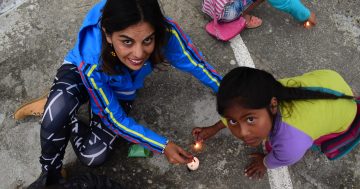
Educacion Diversa founder Lauren Cannell holding an illustration for an article of the UN Convention on the Rights of the Child. Photo: Deejay Jukic, We Are Found.
The United Nations Convention on the Rights of the Child, with its three parts and 54 articles, would make pretty dull reading for adults. The sort of thing you’d pick up from the side table at the dentist’s, and only to save you from having eye contact with the person in the chair opposite. There’s not a chance in the proverbial an actual child would be remotely interested in it.
But this gave Lauren Cannell an idea: Why not make a picture-book version?
It’s exactly what the Canberra woman has done, getting children from all over the world – as well as professional artists – to illustrate each of the 54 articles within the UN Convention.
And she’ll be showing off all of the resultant artwork in the Drawing for Your Rights exhibition at the Hellenic Club in the city next month.
Lauren heads up Educacion Diversa, a not-for-profit with a mission to “give children and adolescents in underdeveloped communities art-based, inclusive education about diverse topics to ensure they have the best chance to access opportunities to break their cycle of poverty”.
In other words, teaching kids about things like human rights, sexual and reproductive health and eliminating family violence.
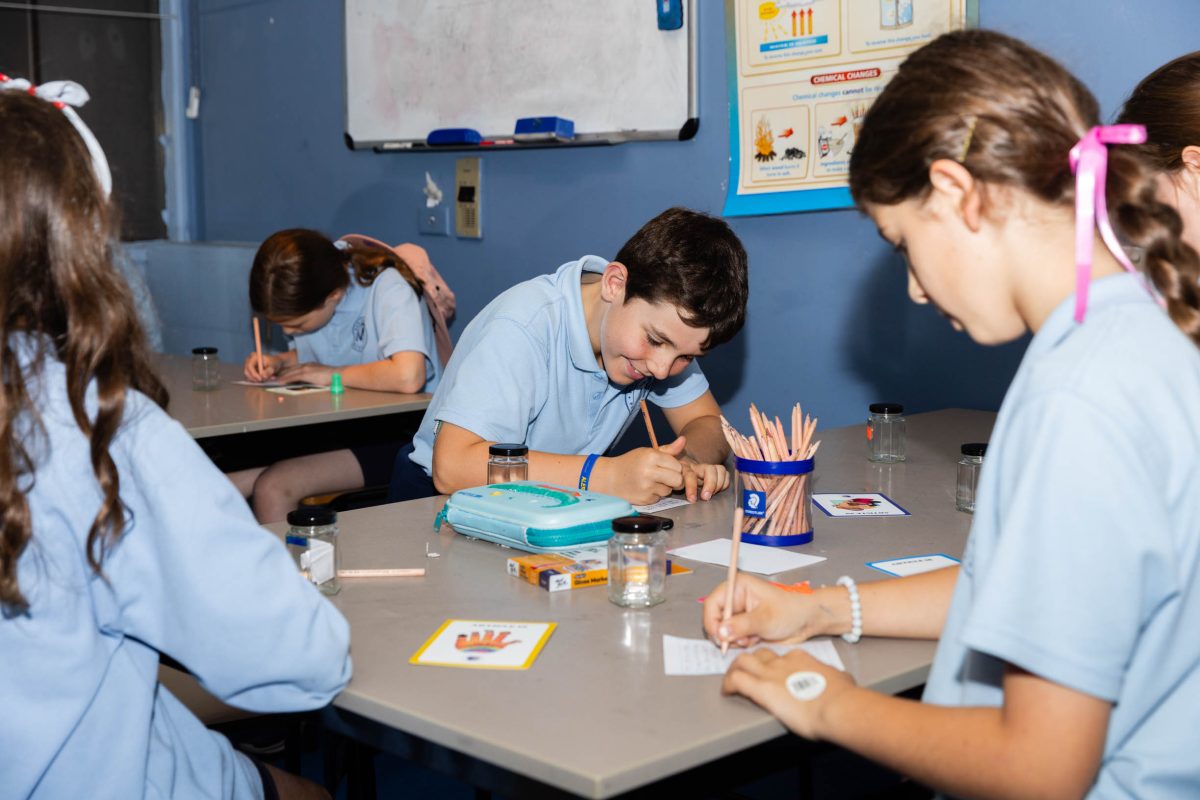
The Educacion Diversa kids’ program at an ACT school. Photo: Deejay Jukic, We Are Found.
She currently runs programs in the ACT at the Maribyrnong Primary School in Kaleen (where some of the artwork comes from) and wants to roll it out to more local schools from Term 2 this year, but Educacion Diversa also goes much further afield.
“We’ve rolled out programs in different countries across Africa and Asia – we’re in talks to do some things in Hong Kong,” she says.
“We only launched it as an actual collective about three years ago, so we’ll definitely be going into other countries. We’re developing a digital learning platform, for instance, so our materials can be accessed wherever via a subscription to the platform.”
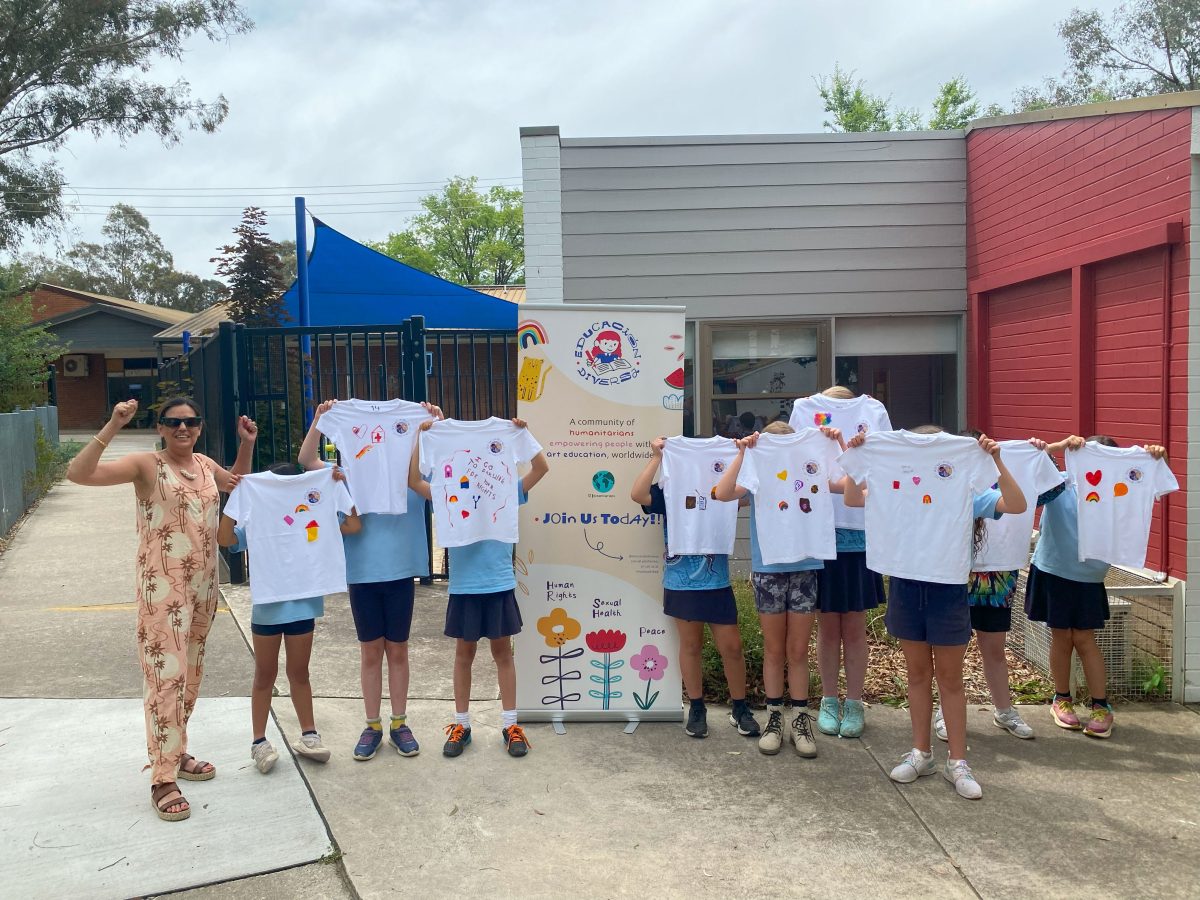
ACT schoolchildren showing off artwork for Educacion Diversa’s programs helping youngsters around the world. Photo: Deejay Jukic, We Are Found.
It all began in Colombia.
“I ended up in Colombia because I married a Colombian and we decided to spend the first few years of our marriage there,” Lauren explains.
“While there, I decided to volunteer in a really underdeveloped community in the far south of the country, and by working with the kids, I started to realise they were getting to certain points in their lives when they’d make some pretty shitty decisions.”
Colombia has the world’s second-highest population of internally displaced people (IDPs), mostly due to conflict in the country and an influx of refugees from Venezuela. In the case of children, they can be forced into manual labour, early marriage, or human trafficking.
“Basically, we were working with kids who had been forced out of their lands or homes and didn’t have access to schools … and obviously the level and quality of schooling that does exist is not great,” Lauren says.
Working remotely for the Australian Government in sexual health and family planning at the time, where she’d “had this dream of using art to teach puberty”, she decided “there’s no reason I can’t try teaching kids about their rights through art”.
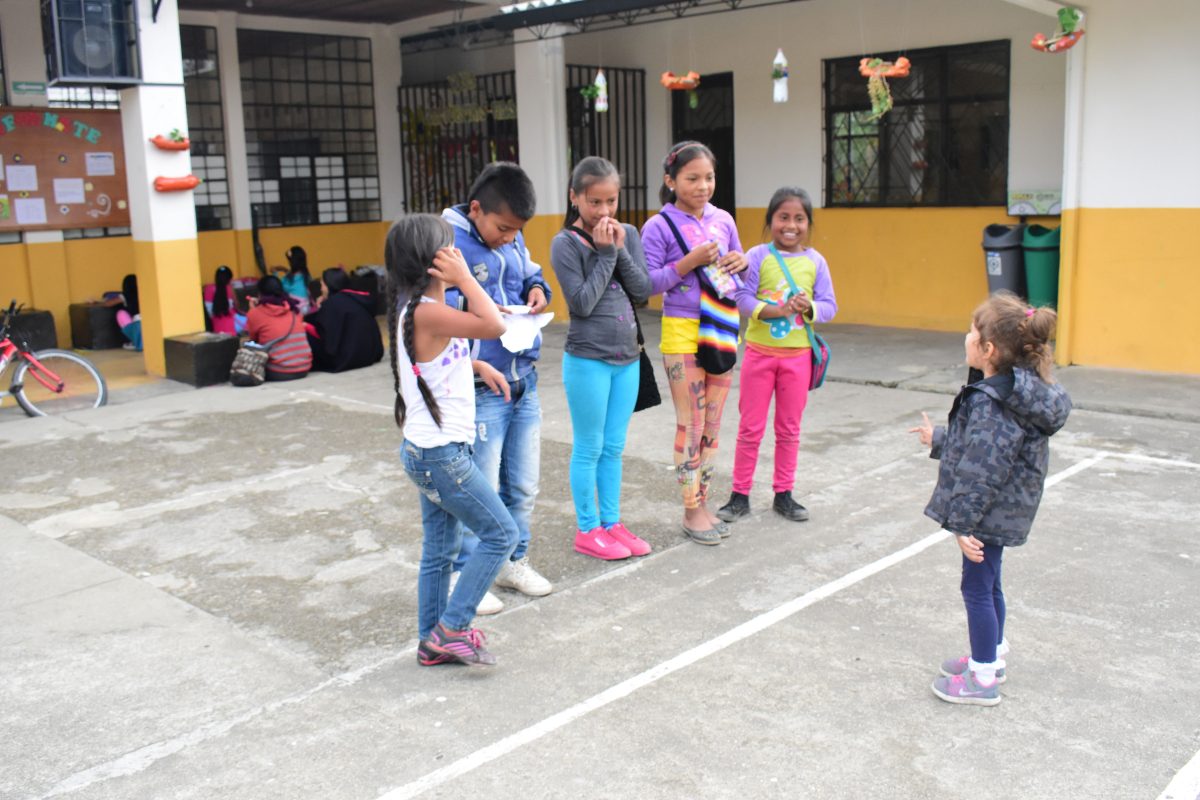
Educacion Diversa’s kids’ program in Colombia. Photo: Lauren Cannell, Educacion Diversa.
The couple moved to Australia to have their daughter but returned to Colombia shortly afterwards to launch it, with the help of more than 100 volunteers.
“We had input from some of the kids we’d previously worked with, who had come through the ranks, and a few uni professors weighed in, and we developed some basic workshops on human rights, sexual reproductive health, and bullying, three for each age group,” Lauren says.
“And then my husband and I travelled up and down the country, delivering the workshops and running a nationwide competition, encouraging kids to submit artworks on an article within the UN Convention on the Rights of the Child that resonated with them.”
All up, they received about 250 artworks from kids around the country, covering about 40 per cent of the 54 articles.
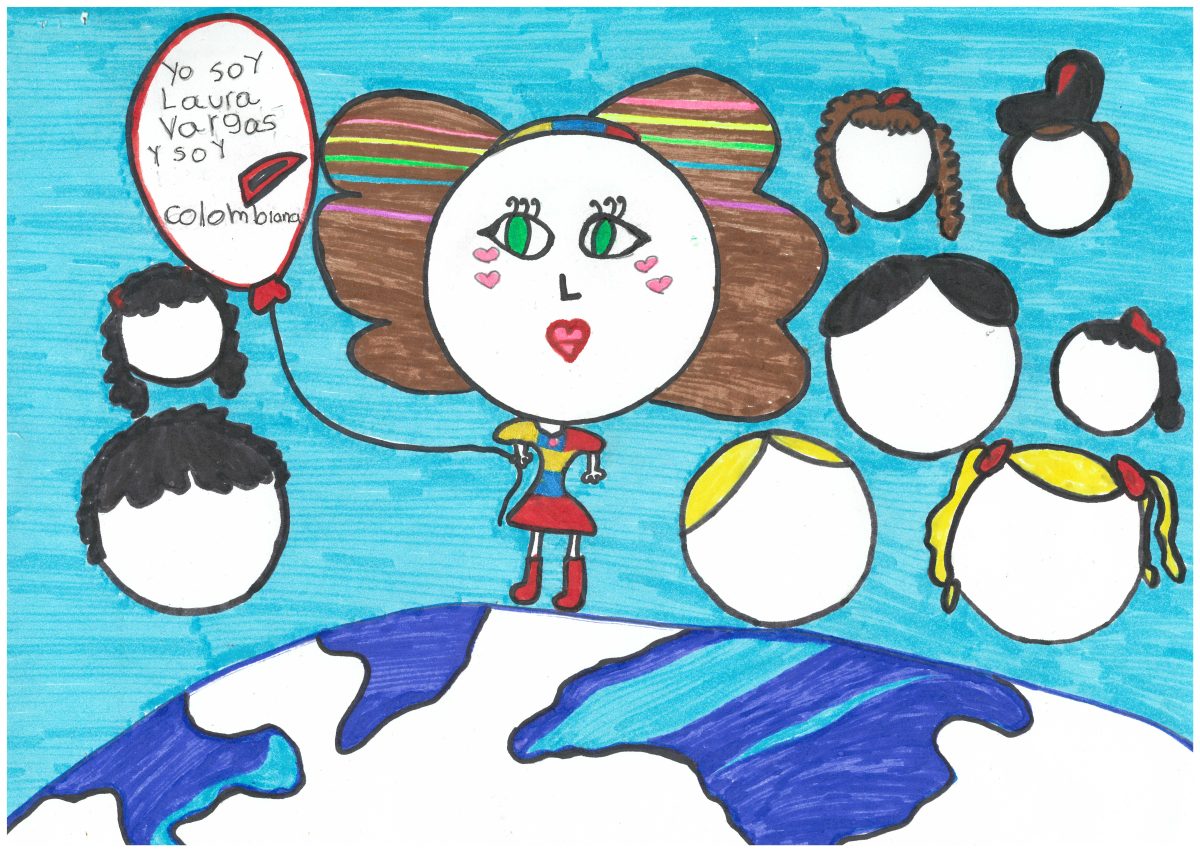
One of the illustrations for the program. Photo: Lauren Cannell.
“Obviously, heaps of kids had chosen ‘the right to play’ and there were some more boring articles no kids had chosen. So we put a call out to artists in the country, and a bunch donated artworks to fill the pages where we needed them,” Lauren said.
The exhibition will feature each of these artworks, as well as a Spanish translation of the UN Convention, which didn’t exist until Educacion Diversa made it happen.
Proceeds will fund an ”Educar Viajando” (educative holiday), an outreach program within underdeveloped communities in Colombia.
“We’re trying to work out a way to continue getting our stuff to kids in these places without us having to personally save and pay for them, so if all goes to plan, we hope to run an annual exhibition, with each one funding us to deliver these workshops in a different country.”
Drawing for Your Rights will be held at the Hellenic Club in Moore Street from 21 to 23 February. Visit the Valuing Children Initiative for more information.












